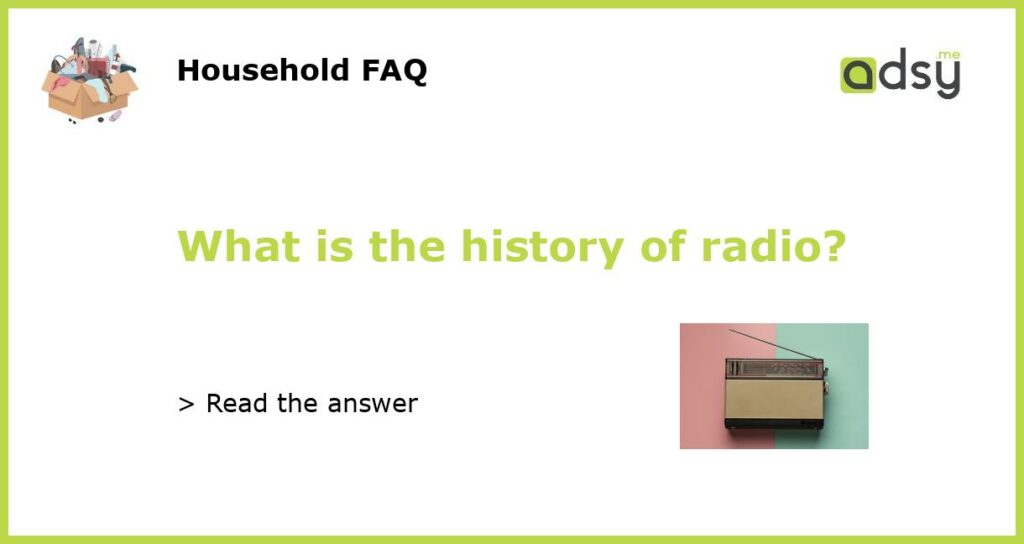The Birth of Radio
The history of radio dates back to the late 19th century when several inventors were working on developing a wireless communication system. One of the key pioneers of radio technology was Nikola Tesla, who first demonstrated wireless transmission in the 1890s. However, it was Guglielmo Marconi who is often credited with inventing radio as we know it today.
Early Developments
In the early 1900s, Marconi successfully sent wireless signals across the Atlantic Ocean, proving the feasibility of long distance radio communication. This breakthrough led to the establishment of the first radio stations and the development of radio broadcasting as a public entertainment medium. Commercial radio broadcasting began in the 1920s, with the first radio advertisements and sponsored programs.
The Golden Age of Radio
The 1930s to the 1950s is often referred to as the “Golden Age of Radio.” During this time, radio was the primary form of entertainment for many households, with families gathering around the radio to listen to music, comedy shows, dramas, and news programs. Radio dramas, in particular, became popular, with shows like “The Shadow” and “The Lone Ranger” captivating audiences across the country.
Advancements in Technology
In the mid-20th century, there were significant advancements in radio technology. The introduction of FM (frequency modulation) broadcasting allowed for higher quality sound and improved reception, leading to the rise of FM radio stations. In the 1960s, the transistor radio became popular, making radios more portable and accessible to a wider audience. This allowed people to listen to music and news on the go, further increasing the popularity of radio.
The Digital Age of Radio
In the late 20th century, the digital revolution transformed the radio industry. The development of satellite radio and internet radio provided listeners with a much wider range of programming choices. Satellite radio, like SiriusXM, offered commercial-free music channels and niche programming options. Internet radio allowed for customizable playlists and on-demand content.






